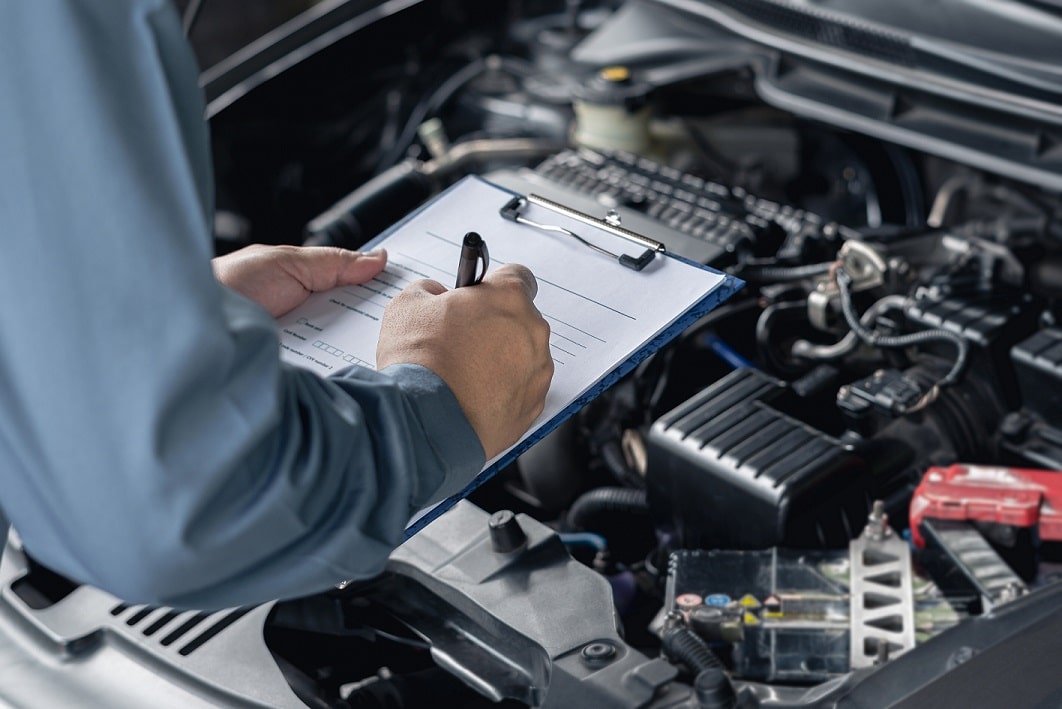All Categories
Featured
When it comes to lorry upkeep, tires are usually neglected, despite being an important element in both security and performance. Choosing the right set of tires can make a considerable difference in your driving experience, particularly in regards to handling, fuel performance, and road security. Comprehending just how to pick the best tires for your car calls for recognizing your driving problems, performance demands, and the different tire alternatives available. Here's an extensive overview to help you make the appropriate selection.
![]()
All-Season Tires: These are one of the most typical kind, designed for a range of driving problems, consisting of damp and dry roadways. They supply a well balanced efficiency, making them a good choice for day-to-day driving in regions with moderate environments.
Summer Season Tires: Suitable for warmer climates, summer tires give exceptional performance on completely dry and damp roadways, supplying exceptional grip and handling. They are not ideal for snowy or icy conditions.
Wintertime Tires: Winter months tires are particularly made to deal with snow, ice, and freezing temperatures. Made from a special rubber substance that remains flexible in winter, they include deep footsteps that grasp the roadway, giving better control and security in wintertime conditions.
Performance Tires: For those driving sports cars and trucks or seeking improved handling, efficiency tires provide higher responsiveness, collaring capacities, and improved grip. These tires focus on performance yet might compromise comfort and resilience.
225: The size of the tire in millimeters. 50: The facet proportion, or the elevation of the sidewall as a portion of the tire's width. R: Radial building, which is the most typical layout for modern tires. 17: The diameter of the tire in inches, matching the size of the wheel. When changing your tires, it's generally best to match the initial size for your vehicle to keep the desired balance of security, comfort, and handling. Modifying tire sizes can impact efficiency, consisting of speedometer precision and fuel efficiency.
![]()
Urban and City Driving: If many of your driving occurs on well-paved city roads, all-season tires are normally the ideal option. They give ample grasp and comfort in modest problems, with an emphasis on efficiency.
Freeway Driving: For frequent freeway drivers, tires that supply resilient toughness and reduced road noise, such as visiting tires, are suitable. These tires offer a smooth experience and are maximized for fuel efficiency over fars away.
Off-Road Driving: If you drive an SUV or truck and frequently venture off the beaten track, you'll need tires developed for rugged surface. All-terrain or mud-terrain tires supply better grip and toughness for driving on gravel, mud, or unpaved roadways.
Balanced Footstep: Many all-season tires feature a symmetrical tread pattern, which provides a balanced efficiency for normal driving problems. It's ideal for completely dry roads, along with moderate wet problems.
Unbalanced Tread: These tires have various tread patterns on the within and outdoors, boosting cornering and security. They use a far better grasp on both completely dry and wet roads, making them a preferred choice for performance vehicles.
Directional Tread: Made with a V-shaped pattern, these tires excel at carrying water far from the tread. They provide much better grip in snowy and rainy conditions, lowering the threat of hydroplaning.
Checking Tire Pressure: Underinflated tires can adversely affect taking care of and fuel efficiency, while overinflated tires can enhance the danger of blowouts. Inspect the tire stress regularly and guarantee it satisfies the manufacturer's specs.
Tire Turning: To make sure even wear, tires need to be turned every 6,000 to 8,000 miles. Uneven wear can cause premature tire failing and affect your lorry's placement and handling.
![]()
Wheel Alignment: Imbalance can cause your tires to wear unevenly and adversely influence your lorry's handling. Have your car's placement inspected regularly, especially if you observe pulling away.
Final thought. Whether you require all-season tires for day-to-day driving, wintertime tires for snowy problems, or efficiency tires for far better handling, comprehending your requirements is essential to making the best choice. Regular tire upkeep is additionally crucial for keeping your tires in ideal problem.
- Understanding Tire Types. The very first step in choosing the ideal tire is recognizing the different types and their features. Each kind of tire is engineered for specific conditions, so recognizing which one fits your needs is important.
All-Season Tires: These are one of the most typical kind, designed for a range of driving problems, consisting of damp and dry roadways. They supply a well balanced efficiency, making them a good choice for day-to-day driving in regions with moderate environments.
Summer Season Tires: Suitable for warmer climates, summer tires give exceptional performance on completely dry and damp roadways, supplying exceptional grip and handling. They are not ideal for snowy or icy conditions.
Wintertime Tires: Winter months tires are particularly made to deal with snow, ice, and freezing temperatures. Made from a special rubber substance that remains flexible in winter, they include deep footsteps that grasp the roadway, giving better control and security in wintertime conditions.
Performance Tires: For those driving sports cars and trucks or seeking improved handling, efficiency tires provide higher responsiveness, collaring capacities, and improved grip. These tires focus on performance yet might compromise comfort and resilience.
- Tire Size Matters. Tire size is one of the most essential variables to consider when selecting new tires. Tire dimension is shown by a series of numbers printed on the sidewall, such as "225/50R17." Right here's exactly how to review them:
225: The size of the tire in millimeters. 50: The facet proportion, or the elevation of the sidewall as a portion of the tire's width. R: Radial building, which is the most typical layout for modern tires. 17: The diameter of the tire in inches, matching the size of the wheel. When changing your tires, it's generally best to match the initial size for your vehicle to keep the desired balance of security, comfort, and handling. Modifying tire sizes can impact efficiency, consisting of speedometer precision and fuel efficiency.
- Driving Conditions and Tire Performance. Where you drive and how you drive plays a considerable duty in identifying the appropriate tire for your vehicle. Right here's what to take into consideration based on your driving habits:

Urban and City Driving: If many of your driving occurs on well-paved city roads, all-season tires are normally the ideal option. They give ample grasp and comfort in modest problems, with an emphasis on efficiency.
Freeway Driving: For frequent freeway drivers, tires that supply resilient toughness and reduced road noise, such as visiting tires, are suitable. These tires offer a smooth experience and are maximized for fuel efficiency over fars away.
Off-Road Driving: If you drive an SUV or truck and frequently venture off the beaten track, you'll need tires developed for rugged surface. All-terrain or mud-terrain tires supply better grip and toughness for driving on gravel, mud, or unpaved roadways.
- Tire Tread Patterns. Tire tread patterns affect how your lorry grasps the roadway, particularly in wet or unsafe conditions. Recognizing tread style is vital to making sure safe handling:
Balanced Footstep: Many all-season tires feature a symmetrical tread pattern, which provides a balanced efficiency for normal driving problems. It's ideal for completely dry roads, along with moderate wet problems.
Unbalanced Tread: These tires have various tread patterns on the within and outdoors, boosting cornering and security. They use a far better grasp on both completely dry and wet roads, making them a preferred choice for performance vehicles.
Directional Tread: Made with a V-shaped pattern, these tires excel at carrying water far from the tread. They provide much better grip in snowy and rainy conditions, lowering the threat of hydroplaning.
- Tire Maintenance for Durability. When you've chosen the right tires, it's important to preserve them properly to expand their life-span and make sure continued efficiency. Regular tire upkeep consists of:
Checking Tire Pressure: Underinflated tires can adversely affect taking care of and fuel efficiency, while overinflated tires can enhance the danger of blowouts. Inspect the tire stress regularly and guarantee it satisfies the manufacturer's specs.
Tire Turning: To make sure even wear, tires need to be turned every 6,000 to 8,000 miles. Uneven wear can cause premature tire failing and affect your lorry's placement and handling.

Wheel Alignment: Imbalance can cause your tires to wear unevenly and adversely influence your lorry's handling. Have your car's placement inspected regularly, especially if you observe pulling away.
- Seek advice from a Professional. While you might have a general understanding of the types of tires offered, it's always a great concept to seek advice from a tire professional. They can supply expert recommendations based upon your specific vehicle version, driving problems, and efficiency demands.
Final thought. Whether you require all-season tires for day-to-day driving, wintertime tires for snowy problems, or efficiency tires for far better handling, comprehending your requirements is essential to making the best choice. Regular tire upkeep is additionally crucial for keeping your tires in ideal problem.
Latest Posts
The Benefits of Consistent Vehicle Maintenance at Montclare Auto Repair Keeps Your Wallet Happy
Published en
1 min read
Explore Trusted Auto Repair exclusively at Car-X – Get Back on the Road
Published en
1 min read
Unlock WyHy Federal Credit Union – Financial Freedom for Your Goals
Published en
1 min read
More
Latest Posts
The Benefits of Consistent Vehicle Maintenance at Montclare Auto Repair Keeps Your Wallet Happy
Published May 22, 25
1 min read
Explore Trusted Auto Repair exclusively at Car-X – Get Back on the Road
Published May 21, 25
1 min read
Unlock WyHy Federal Credit Union – Financial Freedom for Your Goals
Published May 20, 25
1 min read